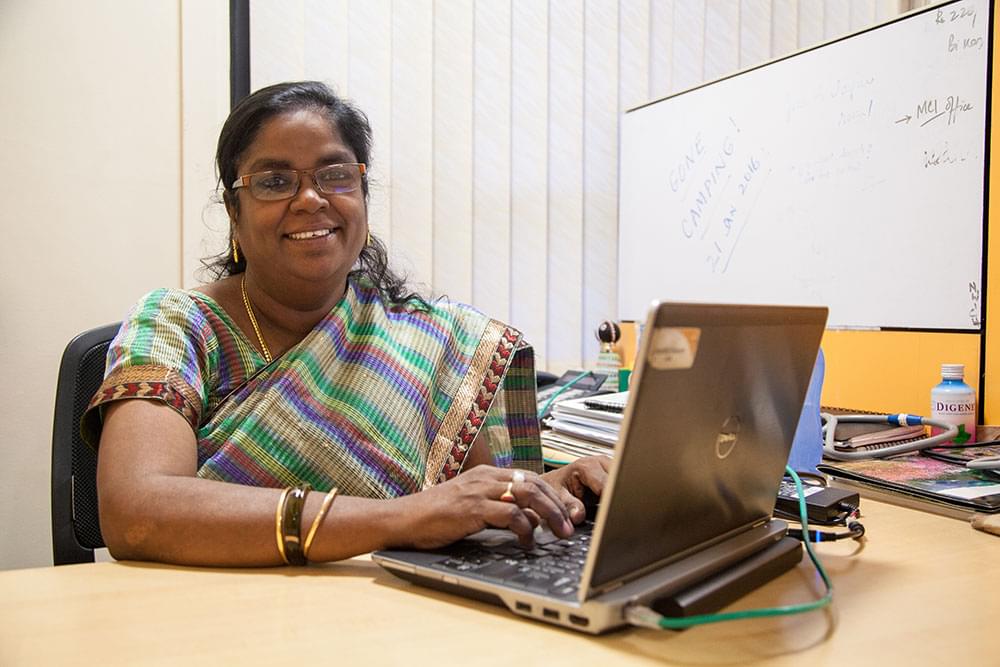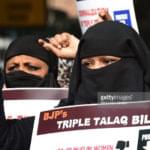Opinions
“Half The Battle Won” In The Fight Against Discrimination Of People Living With HIV/AIDS In India, Say Activists

“It is just half way in the battle” says HIV-positive activist Daisy David, after the Union cabinet silently cleared the amendments in the HIV/AIDS (Prevention and Control) Bill, 2014 on October 5, 2016. “It had been a long struggle since 2002 when activists proposed for punishments against discrimination. It took two more years for the cabinet to clear the bill with the new amendments since it was tabled in Rajya Sabha in January 2014. Now discrimination and laxity in treatment can be a criminal offence”, explains the activist counting the numbers of years through which she has volunteered to advocate for the cause of “Most at risk Population” (MARP) towards HIV.
Daisy is one among the estimated 2.4 million HIV positive people living in India, the third highest number after South Africa and Nigeria. According to Government data the epidemic is “concentrated” in high risk groups such as female sex workers, men-who-have-sex-with-men and injecting drug users. So the amended Bill declares that it is, therefore, important for these groups to access services such as treatment of sexually transmitted infections, HIV testing, condoms, clean needles and syringes to prevent further transmission of HIV to the general population.
Indeed the advocacy and awareness programs have reduced the number of new infections to half but the challenges are mounting to contain further transmissions. Daisy David univocally advocates for treatment and anti-discrimination law for people living or vulnerable to HIV/ AIDS to check further transmission. “The treatment is our primary concern. Since people have been living with a deadly virus in their body it is the duty of the government to provide adequate availability of treatment facilities”, she adds. “And it is sheer discrimination that makes our cases all the more complex”.
With the new bill the cause of forty nine year old L Deepak Singh in Imphal is also vindicated. When he had contracted the disease as a youngster in Manipur and was being treated discreetly, the worst thing he feared was ever being found out. Today he is on Anti -Retro Viral (ART) treatment, happily married with a daughter whose safety he wants to ensure. “The bill to criminalize discrimination and penalize the guilty is highly warranted”, he says. “It is the second generation that is highly at the risk of being left out with no access of proper treatment and opportunity”.
With the amendments, the new bill is expected to be made a law in the winter session of the parliament if other highly political issues do not take priority. This bill for the first time will bring in private health services into the ambit for providing compulsory and emergency treatment for HIV people. Also no one could be tested or treated for HIV without the knowledge of the concerned person. The status of a person too remained a private matter and could not be disclosed without the person’s informed consent making it a criminal offence if breached.
Activists have severe concern that persecution of family members and children were the worst form of discrimination and that needed to be protected by law. Last year a couple with two children committed suicide in Howarh district of West Bengal, after their status were made public in a government hospital and doctors turned the children from being treated. Similar incidents were made public in Goa last year when a reputed public school decided to throw away students suspected of HIV status. Many more cases remain unreported and many more times people die in want of adequate treatment. The biggest concern was for the “Most at Risk Population” (MARPS) who were initially acknowledged as high risk people but still have not been prioritized for protection and vulnerability.
Activists say that children born of HIV parents are discriminated blatantly at school, neighborhood and in families. More than their positive status, the fear of being found out was their biggest fear growing up as second generation children.
Prakriti Thomgbam a young girl of seventeen living as a second generation HIV person on ART admits that there was a constant fear and blackmailing that drove her to live in anonymity. She was born with the virus and lived on anti-retroviral treatment since birth. It was during one of these times when she had to go for treatment for a lung infection as a teenager that her status was made public by the pharmacy guy. Doctors usually mention the status of the patient in a usual prescription making it all the more difficult for the person and family members to seek confidentiality. They are then gaged, persecuted and victimized for their status that affects their treatment later on. Prakriti says, “The reason for protection by law was deeply required for continued and easy availability of Anti- Retro Viral Therapy (ART)”.
This Bill addresses the concerns by criminalizing the offence of discrimination with a minimum of three month’s imprisonment up to two years with a fine up to a lakh of rupees or both. “Penalizing by law will be deterrent for blatant discrimination in treatment” says Dr Anita Victor, Director, Health for World Vison India, a humanitarian organization working with people living with HIV/AIDS. “The status of children remained the most susceptible because they did not have a life of choice and have a long way to go. The hitch has been the inclusion of a phrase that says treatment “as far as possible” keeping a scope for laxity and indifference while providing free treatment”, she explains. Clause 14 of the HIV/AIDS Bill 2014 provided for ‘treatment’ mentions, “The measures to be taken by the Central Government or State Government shall include the measure for providing, “as far as possible”, Anti -Retroviral and Opportunistic Infection Management to people living with HIV or AIDS.
Activists feel the victory that came with free treatment being a legal right got diluted by those few words mentioned in the bill. The clause can impact the treatment of a patient denied Anti-retroviral treatment (ART) and Opportunistic Infection Management to drag any government to court.
Currently an estimated 1,38,456 children were living with HIV (NACO Technical report, 2015) in India. The government plans to make a district-specific implementation plan with specific resource allocation for treatment and diagnosis of HIV people in every state.
This Bill though has a rights-based approach and raises issues like “inclusion” for “protected persons” but does not covered “Most at Risk Populations (MARP)” who initially formed the basis for vulnerability towards HIV. They also point out that these groups are at an increased risk of HIV and are discriminated in the Bill itself by being excluded. By omitting them from the category of “Protected Persons”, means that the Bill will not protect their rights i.e. right to equality, right to informed consent for HIV test and treatment and right to confidentiality. MARPS groups now want that a sub-section be added to the definition of ‘Protected Persons’ that will include female sex workers, an injecting drug user and men who have sex with men and a transgender person.
If MARPS are discriminated against and denied healthcare, education and jobs on the grounds of the activities they are associated with then they become all the more vulnerable to HIV. This will force them to avoid healthcare settings and information thus increasing risks for larger population. By protecting the rights of these groups the prevalent law of the land can ensure that they are in the mainstream and they access testing and treatment services. Also they do not increase their vulnerability and thus avoid transmission of HIV to the general population.
